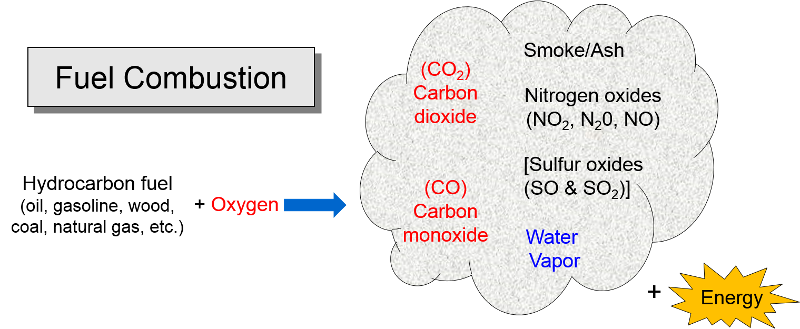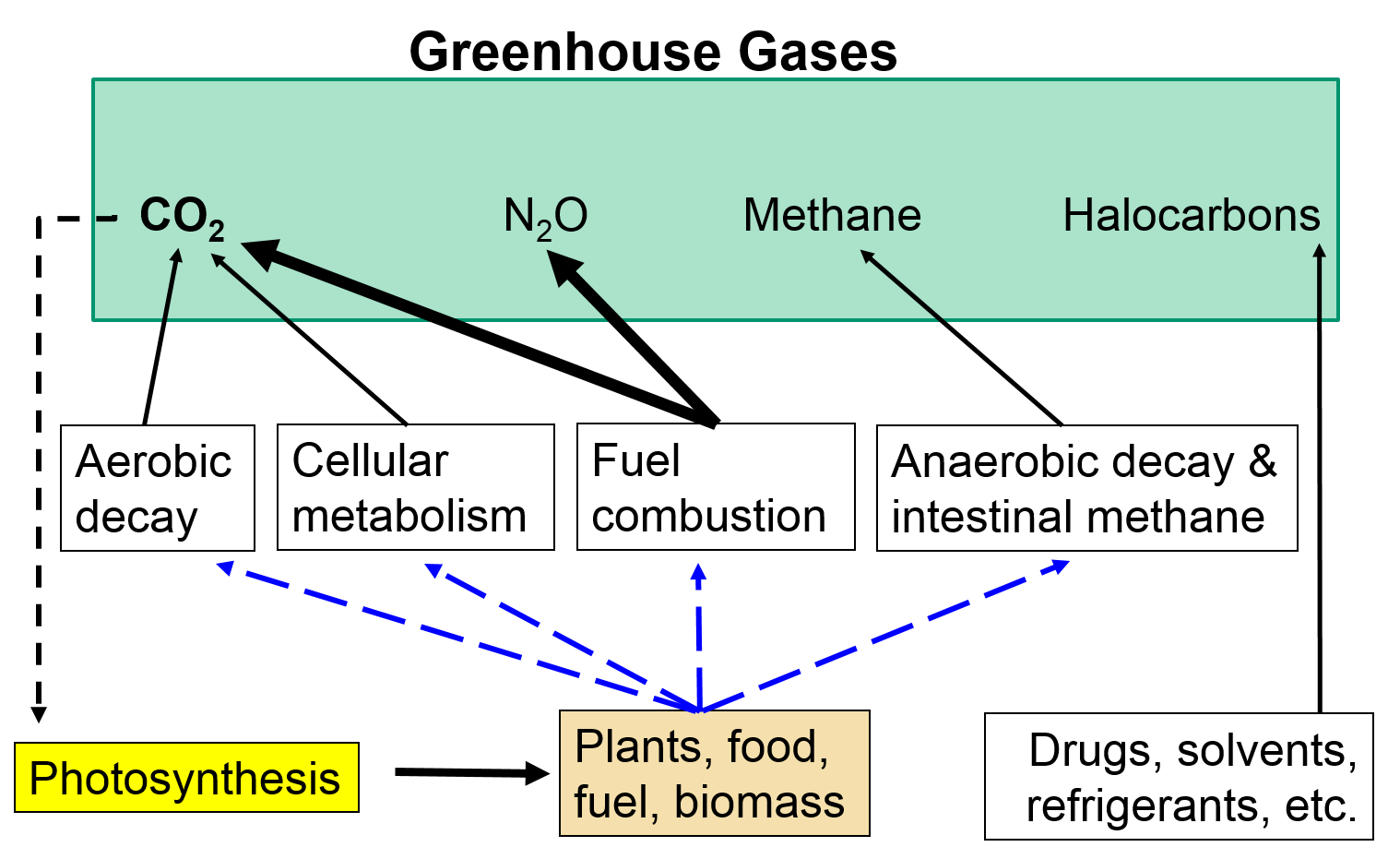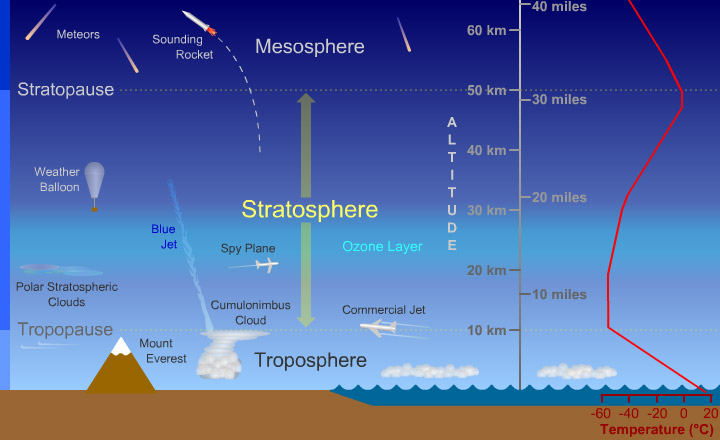Greenhouse Gases & Climate Change
Greenhouse gases are gases that trap heat in the atmosphere. Excess heat trapping produces an undesirable increase in the temperature of the earth that can have far-reaching effects on climate, weather patterns, and human health and well-being.
Carbon dioxide is the most important greenhouse gas, because it it produced in such enormous amounts. We noted earlier that during cellular metabolism food components such as glucose, starch, and fats are combined with oxygen to produce energy, and CO2 and water are by- products.

Fuel combustion similarly oxidizes fuels to produce energy, releasing CO2, nitrogen oxides, and sulfur oxides as byproducts.

And photosynthesis in plants is just the reverse of this in that it uses energy in the form of sunlight to convert CO2 and water into glucose and oxygen.

Thus, carbon dioxide is a naturally occurring compound that plays an essential role in the carbon cycle from photosynthesis to cellular metabolism. Nevertheless, the growing combustion of fossil fuels over the past three centuries has pumped enormous amounts of carbon dioxide into the atmosphere.

The iFrame below will enable you to explore the EPA's web pages on greenhouse gases and climate change. Pay particular attention to the links on the upper left hand side of the web page, and be sure to explore the links on
- Climate change
- Greenhouse gases
- Overview of gases
- Sources of emissions
- Individual calculator (enables you to compute your "carbon footprint" and see the impact of energy efficiency changes that you might consider making.

Image source: https://www.windows2universe.org/earth/Atmosphere/images/stratosphere_diagram_big_jpg_image.html
Consequences of Global Warming
- Rising sea level will:
- claim agricultural land,
- cause loss of land and buildings on sea coasts,
- disrupt breeding grounds for fish and shellfish
- contaminate freshwater aquifers with sea water
- create large numbers of refugees
- Increased heat will:
- cause more crop failures
- increase human death and disability from cardiovascular disease
- increase the range of disease vectors, e.g., mosquitoes and malaria
- increase waterborne and foodborne illnesses
- cause more severe weather patterns with more storms and more severe storms with resultant damage from wind, rain, and flooding
The Clean Air Act


